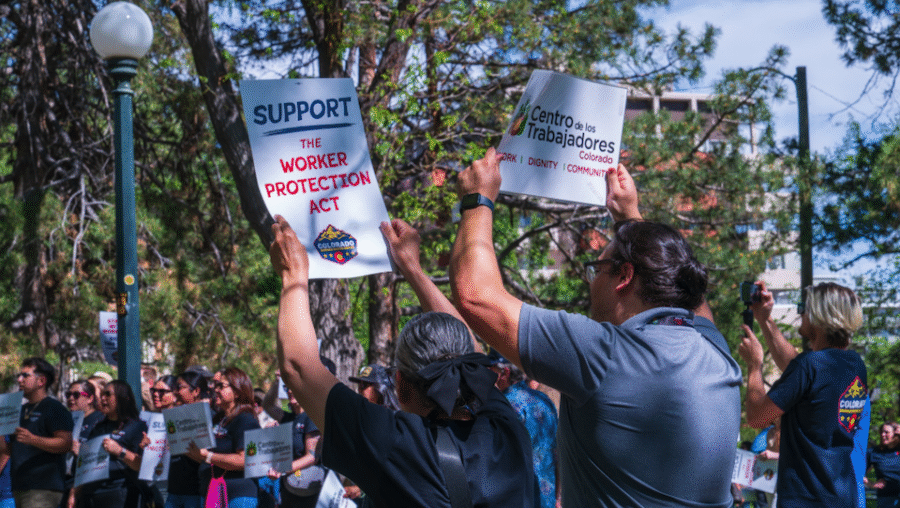Colorado’s Democratic Governor Jared Polis vetoed a bill on May 16 that would have removed a major impediment to union organizing and representation in the state.
Federal labor law calls for a majority vote needed to create a union, but under Colorado’s Labor Peace Act of 1943 the state imposed the extra requirement that 75% of workers must agree in a second vote before union dues can be deducted from their paychecks to pay for the cost of bargaining on their behalf.
As the only such two-step process in the nation, this has resulted in union membership levels in Colorado that are nearly as low as those in “right to work” states. Twenty-seven states have right to work laws that allow workers to opt out of joining a union or paying union fees even if they are represented by a union.
This session the Colorado legislature passed a bill, Senate Bill 5, along straight party lines to repeal that extra requirement, with Democrats voting “yes” and Republicans voting “no.”
Although Democrats typically support union rights, Governor Polis said he would only sign the bill if labor and the business community reached a compromise. But the business community — represented by the state, the Colorado Chambers of Commerce, and Colorado Concern, another pro-business group — walked away from negotiations to find a compromise and the governor angered Democratic legislators by attempting to “broaden the talks into other contentious areas,” according to the Denver Post.
“Governor Polis has chosen to protect an 80-year-old, anti-union law over the rights of working Coloradans,” said Stephanie Felix-Sowy, leader of Colorado Worker Rights United and president of SEIU Local 105. “He is now the only Democratic governor in the country defending a ‘right to work’ policy that undermines worker freedom and shields corporate power.”
“At its core this is about who has a say in whether union dues are deducted from employee paychecks,” Polis told Colorado Politics. “To my mind, mandatory dues deduction should require a high bar of both participation and support, particularly at a time when hardworking Coloradans are concerned about the cost of groceries, the economy, and their job security.”
The Colorado chapter of billionaire industrialist Charles Koch’s astro-turf political operation, Americans for Prosperity, also opposed the bill, arguing that it would hurt competition and undermine the constitutional right to free association.
In his veto letter, Polis insisted that he remains “pro-union” and “pro-worker” and encouraged continued negotiations. But he wrote that he had hoped a compromise on changing the Labor Peace Act would “avert damaging and costly ballot wars” over union rights.
Still, a labor war at the ballot box is already brewing for 2026. Three days before Polis’ veto, unions started collecting signatures on a measure to require “just cause” before an employee can be fired. And leaders of the Independence Institute, the Colorado affiliate of the anti-union State Policy Network (SPN), have submitted papers for a ballot measure to make Colorado a “right to work” state.
Over the past decade, SPN has led efforts across the country to “defund and defang” unions in order to undermine the political strength of Democrats.
Sign up for our biweekly newsletter to stay updated with our latest work!



Leave a Reply